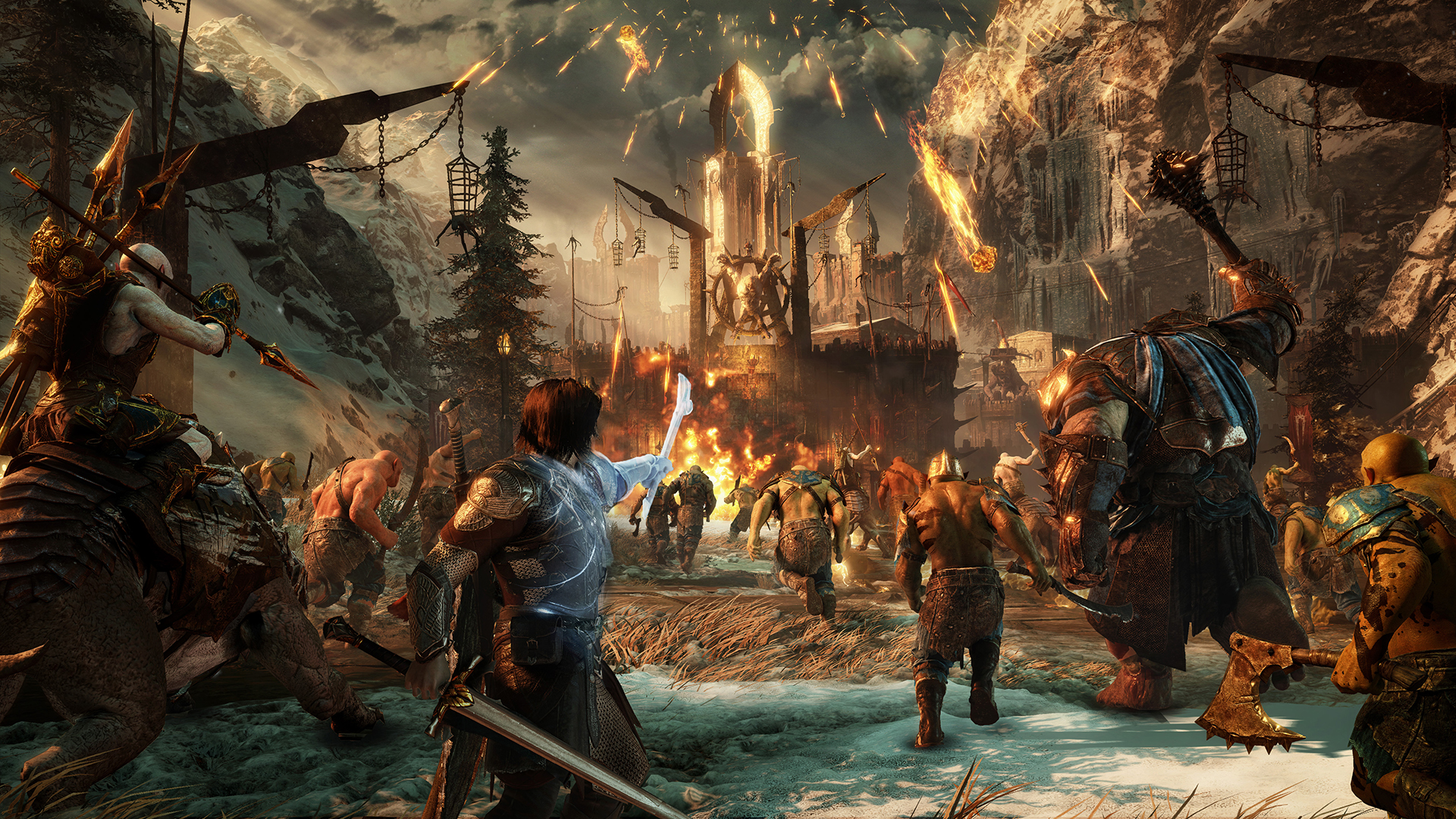Gamers Can’t Stop Buying the Loot Boxes They Hate
Credit to Author: Matthew Gault| Date: Mon, 09 Oct 2017 17:42:25 +0000
Star Wars Battlefront II isn’t out until November, but publisher Electronic Arts gave fans a chance to play the beta this weekend for free. Thousands of players stormed Naboo’s throne room, piloted Poe Dameron’s X-Wing, and hunting rebels as Boba Fett. A good time was had by most, but the game’s reliance on loot boxes has angered some fans.
Loot boxes contain rewards that change the game slightly and in some cases give players a little boost over other players. Sometimes the boxes jut contain aesthetic items such as costumes, but increasingly they contain items that modify the way a game plays. As of this writing, the top three threads on the Star Wars Battlefront subreddit and the top five threads of the /r/games subreddit are discussions by fans upset about the presence of loot boxes in a $60 game. They’re angry because, if the beta is any indication, then Battlefront II’s progression system is completely tied to the loot box economy.
It’s another in a long list of recent examples of how big video game publishers are pushing loot boxes to squeeze extra cash out of their customers. Forza 7, Lord of the Rings: Shadow of War, and Assassin’s Creed: Origins all made news this past week for including a loot box economy in a $60 games. Worse, some anti-loot box extremists are attempting to ruin other player’s good time by spoiling the games for them in attempt to hurt sales.
Based on the beta, Battlefront II has tied player progression completely to loot boxes. As in previous games, Battlefront II players earn guns and mods by playing, but now players earn credits towards the purchase of boxes after every match and have a chance to get scrap from loot boxes which they can use to buy specific cards and guns.
The rate at which a player gets credits doesn’t appear to be tied to how well they play. When playing this weekend with friends, my buddies would sometimes have double or even triple my score, but we’d all get the same amount of credits at the end of the match.
Players spend those credits on loot boxes which contain three random items. They could be guns, scrap, or mod cards. After roughly ten hours of play this weekend, I had collected 160 scrap. That’s enough to buy some lower tier cards, but not enough to buy one of the weapons which cost 600 scrap each. Of course, this convoluted progression model becomes profitable because if I want to skip this grind, I can just pay EA some real-world money to buy loot boxes, though at the moment we still don’t know what EA is planning to charge for those.
The loot boxes could cost $1 or $100. It doesn’t matter. It’s the principle that is making players on Reddit and YouTubers like Angry Joe and TotalBiscuit angry: EA took what was once a linear player progression model that was designed to keep players playing, and tortured it into this new model that is designed to get more money of them via microtransactions.

This is an angry conversation that the media, players, and game makers have been having for about a decade, but some monetization schemes in the past few days have brought it to the forefront once again.
Popular racing title Forza 7 angered fans when it tied its $20 VIP service to limited use mod cards found also found in loot boxes. Players were so angry that developer Turn 10 is changing it and offering VIP fans four free cars and 1 million credits as an apology.
Lord of the Rings: Shadow of War is another big game releasing this week with a $60 price tag and a microtransaction economy built in. Players can pay a few extra bucks for boxes of rare orcs and other legendary loot. Early reviews of the game are mostly positive, but have pointed out that the game’s ending is locked behind a tedious 20-hour grind that encourages players to drop cash on the aforementioned loot boxes.
The Shadow of War situation has angered some fans to the point that they’re trying to ruin the game for others to make a point. Anti-loot box extremists are messaging fans on the /r/shadowofmordor subreddit with spoilers about the game and encouraging them not to buy it. Its Steam forums are preparing for a review bomb of the game. Its Facebook page is full of fans arguing the merits of microtransactions.
“This is the big test of whether or not we’re willing to accept these kinds of things in our games,” TotalBiscuit said in his video about Battlefront II‘s loot boxes. “Unfortunately, I think it’s very likely that we will.”
Will TotalBiscuit and vengeful Redditors manage to fundamentally change the video game industry’s growing reliance on loot boxes? I doubt it. This conversation has lasted more than a decade because, despite a small contingent of players upset about loot boxes, what players do matters more than what they say. And what players do is buy loot boxes. Players buy so many loot boxes that companies make a lot of money they wouldn’t have made otherwise.
Activision made $3.6 billion in 2016 from selling such items. “We’ve been a leader in driving digital extra content for games, which really drives the profitability of this business,” EA CFO Blake Jorgensen said during an investor’s conference in 2016. “The extra content business is [$1.3 billion] a year.”
It’s been a bad week for loot boxes, but they’re not going away as long as these companies make that kind of money from them.